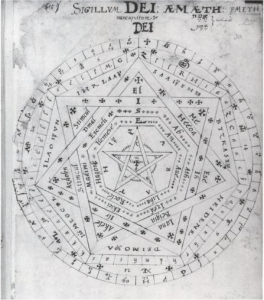Please comment here if you have questions, suggestions, criticisms, and accusations concerning the bibliographic entry for More Than Belief: A Materialist Theory of Religion by Manuel Vasquez. Also, please comment here if you modify the entry, stating what you changed or added and logic behind your change (if it isn’t self evident).
Author Archives: Christopher Lirette
Space and Place: The Perspective of Experience Discussion
Please comment here if you have questions, suggestions, criticisms, and accusations concerning the bibliographic entry for Space and Place: The Perspective of Experience by Yi-Fu Tuan. Also, please comment here if you modify the entry, stating what you changed or added and logic behind your change (if it isn’t self evident).
“Space, Knowledge, and Power” Discussion
Please comment here if you have questions, suggestions, criticisms, and accusations concerning the bibliographic entry for “Space, Knowledge, and Power” by Michel Foucault. Also, please comment here if you modify the entry, stating what you changed or added and logic behind your change (if it isn’t self evident).
“Worlds in Space: American Religious Pluralism in Geographic Perspective” Discussion
Please comment here if you have questions, suggestions, criticisms, and accusations concerning the bibliographic entry for “Worlds in Space: American Religious Pluralism in Geographic Perspective” by Bret E. Carroll. Also, please comment here if you modify the entry, stating what you changed or added and logic behind your change (if it isn’t self evident).
Place: A Short Introduction Discussion
Please comment here if you have questions, suggestions, criticisms, and accusations concerning the bibliographic entry for Place: A Short Introduction by Tim Cresswell. Also, please comment here if you modify the entry, stating what you changed or added and logic behind your change (if it isn’t self evident).
No Place of Grace Discussion
Please comment here if you have questions, suggestions, criticisms, and accusations concerning the bibliographic entry for No Place of Grace: Antimodernism and Transformation of American Culture by T.J. Jackson Lears. Also, please comment here if you modify the entry, stating what you changed or added and logic behind your change (if it isn’t self evident).
The Practice of Everyday Life Discussion
Please comment here if you have questions, suggestions, criticisms, and accusations concerning the bibliographic entry for The Practice of Everyday Life by Michel de Certeau. Also, please comment here if you modify the entry, stating what you changed or added and logic behind your change (if it isn’t self evident).
Origins
This is the origin post for our class’s blog. Each week, two of us will post a response to the weekly readings here. For some basic instructions on posting, please read the following:
- Login at scholarblogs.emory.edu.
- Hover cursor on “My Sites” and click “Placing American Religions.”
- Click “Posts,” then “Add New.”
- Write excellent blog post.
- Click “Publish.”
You will be able to save drafts and edit your posts. Also, note that this installation of wordpress allows you to embed pictures and video relatively easily. Just click the heptagram next to “Upload/Insert” above the text editor. Here’s an example:
It is unclear why wordpress technicians chose the heptagram to symbolize “insert media,” though it is interesting to note the symbol’s interesting trajectory. It was adopted from the medieval Christian grimoire Liber iuratus, also called Grimoire of Honorius (sometimes attributed to Pope Honorius I or III), by John Dee to perform rituals of Enochian magic. It was called the Sigillum Dei Aemaeth, or Seal of the Living God. Dee, a sixteenth century magician and advisor to Queen Elizabeth of England, coined of the term “British Empire.” Aleister Crowley, a turn of the twentieth century British occultist who was once barred entry into Isis-Urania Temple in London by none other than William Butler Yeats, refashioned the heptagram as the “Star of Babalon.” Now most seen tattooed on fans of the television show Supernatural, created by Eric Kripke. The protagonists of that show use the heptagram to anchor demons to a physical, geographical location, to prevent them from being too diffuse to defeat.
In addition to posting, please take advantage of hyperlinking, especially to the class annotated bibliography. Right now, it is not clear whether ECIT will allow a wiki plugin on our website, but rest assured, there will be something to link to. For instance, this installation of wordpress does have a Zotero plugin, which would allow a type of integration with our blog if we decide to use that application (which is a browser add-on for Firefox) and its collaborative library function, which I’ve already set up for our class.

